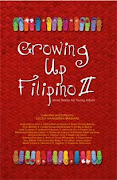Hi, I'm sharing my short story, "Waiting for Papa's Return", which is part of my first short story collection, Woman with Horns and Other Stories. This story also appeared in the anthology Home to Stay: Asian American Women's Fiction, edited by Sylvia Watanabe and Carol Bruchac, Greeenfield Review Press. It was also published in Making Waves: An Anthology of Writings by and about Asian American Women, edited by Asian Women United of California, Beacon Press.
Woman with Horns and Other Stories is easily available in its Kindle ebook form. ~ #CeciliaBrainard
~~~
WAITING FOR PAPA'S RETURN
When Reverend Mother Superior tells Remedios her father died, all she can think is how ugly the nun looks. Remedios stares at the mustache fringing the nun's upper lip; Reverend Mother Superior stares back with pale watery eyes.
“This morning, child. Heart attack,” the nun says.
In the distance the three o'clock bell rings as if repeating the nun's words. It is an October Thursday, warm and humid. The sound stays with Remedios as the nun brings her to the chapel. “Let us pray so your father will go straight to heaven,” she whispers. They kneel on the front pew and Remedios closes her eyes. The ringing that echoes in her head fades and she hears her father's voice loud and clear: I'll be back in two weeks.
She clings to those words, mulling over them. I'll-be-back-in-two-weeks. That means next week because Mama and Papa have already been gone for a week. She pictures her father with his oval face, his gold rimmed glasses, and his balding head. Leaning on his cane, he asked, “What do you want me to bring?”
“Mama says she'll buy me shoes, clothes, candies, and chocolates.”
“But what do you want?” his gentle voice prodded.
“A walking doll and a tea set like Mildred's. Not the plastic tea set, I want the kind that breaks.”
“All right,” he replied, tousling her dark hair. “I'll scour all of Hong Kong and I'll bring you your doll and tea set.”
Those words her father said and he never lies. Remedios is confused: Reverend Mother Superior is the most important person in school and she doesn't lie either. She must have made a mistake. Papa and Mama will be back next week from their vacation.
Remedios thinks things over, trying to find a reason for this misunderstanding. Was it because she and Mildred giggled in church at the fat woman singing in a warbling voice? Mildred elbowed her in the ribs and they were bad, no doubt about it, snickering in the back row instead of paying attention to Father Ruiz's novena.
The chapel smells of melted wax, and when Remedios opens her eyes, she studies the bleeding Jesus nailed to the cross. “I'm sorry for having been bad,” she prays over and over, until Reverend Mother Superior stands up and says, “Your aunt is picking you up, child.”
They find Tiya Meding in the office. She is wearing a brown dress; her face is pale, her eyes, pink-rimmed. “Poor, poor child,” she mumbles. In the car she looks at Remedios in a way that makes Remedios think her aunt is trying to discover something in her — and Remedios does not know what.
Feeling awkward, Remedios rolls down her window and watches the hawkers selling lottery tickets, boiled bananas and soft drinks. Her aunt delicately blows her nose and sniffles.
“Look, there's the woman in black, dancing in front of the church,” Remedios points out.
“Crazy woman,” Tiya Meding answers.
“Papa says she's pathetic.”
“Pathetic, my food. She's as loony as they come.”
Remedios keeps quiet; pathetic is how her father describes the woman in black.
Her aunt's chauffeur — that is what Tiya Meding calls her driver — brings them to Vering the Dressmaker. Remedios is surprised that she will have a dress sewn, and she nods approvingly at the design: puffed sleeves, boat neck and shirred skirt.
“And pockets, two square pockets,” Remedios says.
Vering sketches in the pockets.
“And I don't want this black cloth. Yellow organdy would be nicer.”
The two women eye each other.
“But the dress has to be black,” Tiya Meding insists.
“I don't like black. Papa says I look prettiest in yellow.”
“The dress will be black, Remedios.” Her aunt sets her jaw and Remedios knows there is no use arguing.
Before leaving the dressmaker's shop, Tiya Meding asks for pieces of black cloth the size of postage stamps, and she pins one on Remedios' blouse, right above her heart — a little bit of black cloth that flutters when the warm breeze blows.
At school she is the center of attraction, like the actress Gloria Romero or the one-eyed freak with the Chinese Acrobatic Troupe, stared at by everybody. When she picks up her schoolbag, the children glance curiously at her. The visitors streaming into Tiya Meding's house look at her, and when she and her aunt go to the funeral parlor and church “to make arrangements,” people study her. Remedios feels as if her nose were growing from her forehead. Pairs of glassy eyes follow her aroundand she does not know what they want, how to escape them.
At her aunt's house, she tries to amuse herself by inspecting the numerous porcelain figures in the living room — pretty dainty women with ducks beside them, little angles kneeling down in prayer, but her aunt snaps: “Don't touch those. They're breakable.” She goes to the piano and plays “Chopsticks,” but her aunt lifts a reprimanding finger in the air. “The noise,” she complains. Tiya Meding is on the phone and Remedios listens to her.
“Thank you,” her aunt says. “Heart attack. Isn't that too bad? I warned my sister. An older man like that.” Tiya Meding's diamond earrings dangle from her elongated ears and a huge diamond solitaire sparkles on her finger.
“Baubles,” her father often says about Tiya Meding's jewelry. “She is a silly woman who likes baubles.”
Remedios leaves the main house thinking to herself: Silly, silly woman. She goes to the dirty-kitchen and has a second lunch with the servants. Using her fingers, she makes a ball of rice and eats that with stewed fish. Later, she helps the cook peel cassava and grate coconuts.
“Your father was a good man,” the cook says. “He made my son the foreman at the road construction.”
“Yes,” Remedios replies, “I can't wait until he comes home.”
After speaking, she wonders why she said those words at all. She understands what Reverent Mother Superior said, what all the commotion is about, yet deep in the very core of her, she knows her Papa will return.
The kitchen is sooty and smells of grease and bay leaves. The cook, standing next to the huge wood-burning stove, looks at her. Remedios continues grating. She watches the curly slivers of white coconut meat fall into the basin. The kitchen smoke seems to engulf her and she feels warm. The pungent smell makes her temples throb. She begins to feel weak, just as she felt when her cousin told her she was adopted. He had lost in a game of checkers, and angrily, he told Remedios that her parents picked her up from a pile of trash, that she had been covered with fat flies. She did not cry; she crawled into bed to sleep off her tiredness. Her mother called the boy an idiotic pervert. Her father placed her on his knee.
“See this bump on my nose?” he said.
“Yes.”
“Don't you have a bump on your nose like mine?” His warm finger traveled down her nose over the slight protrusion.
She nodded.
“That mean that you are my very own little girl. We didn't adopt you.”
The darkness lifted, and the next time she saw her cousin, she stuck her tongue out at him. But now the tiredness stays and she drags around until bedtime. It seems she has just tucked the mosquito net under the mattress when she falls asleep and has a dream.
It is Sunday, and she, Mama and Papa are driving over bumpy, dusty roads to Talisay Beach. Remedios is happy because she enjoys clamming in the small inlet. But when they arrive, the sea is blood-red and smells foul. Remedios cries and her Papa asks why.
“Something terrible has happened,” she says.
“It's all right,” he answers. “I'm right beside you.”
She dries her eyes and, noticing that the water has turned blue and air clean once more, laughs and hugs her Papa.
“Don't cry. It makes me sad,” her father says in her dream.
She wakes to Tiya Meding's voice telling her the plane is arriving in less than an hour. Trying to get excited, she bathes with her aunt's Maja soap and dabs Joy perfume behind her ears. Like a sleepwalker, she puts on her new black dress, white socks, and black patent shoes. Remedios ties yellow ribbons at the ends of her braids, but Tiya Meding removes those. “Not for a year,” she says.
Heavy-faced people wearing somber clothes crowd at the airport. They stare at Remedios and she tries hard to figure out what they want from her. She laughs. “I can hardly wait to see them,” she exclaims in a high thin voice. Pairs of eyes follow her, letting go only when the noisy plane arrives with a loud screech. The special cargo plane stops near the terminal, and some men open the side doors and struggle to bring a casket down. When Remedios spots her mother walking down the ramp, she runs shouting, “Ma!” The mourners around her pause. “Ma, where's my walking doll and tea set?” Her aunt tells her to be quiet. “She's just a child,” someone says. “Just a child.”
Her mother appears dreary in her black dress — Remedios really hates that color — and she weeps constantly. She will not talk, will not tell Remedios that everything will be fine.
A hollow feeling roots inside Remedios and sometimes she feels like a conch shell sitting on the writing desk. Other times it seems she is hanging on a thin thread, like the gray spider that swings back and forth from the ceiling. She feels odd, as if waiting for something to happen so all the staring will end, so the strangeness that has invaded her life will disappear.
The next day there is a Mass, then the men carry the coffin to the funeral car, so black and slick. When it starts raining, people scramble for umbrellas or newspapers and they mutter: Ah, a good sign, heaven is weeping. She, Mama and Tiya Meding walk behind the funeral car to the old cemetery with gray crumbling crypts. Some women hold umbrellas over them to keep their heads dry. Remedios trudges along, splashing in puddles, watching the slum children playing in the rain.
At the cemetery, the men pick up the coffin, carry it to the family crypt, and open it. The priest sprinkles holy water inside. Her Mama, who emits wailing sounds and whose shoulders are shaking, bends over to kiss the man inside. Remedios has not looked, but she knows that a man is in there. She had heard people talking: “Looks like he's sleeping, doesn't he? They sure did a good job.”
Her Mama turns to her and Remedios walks toward the casket. Tiptoeing, she peers in. The man's face is a waxy mask. He doesn't wear glasses and his tight little smile is a grimace. There is a smell like mothballs. Remedios feels faint. She wants to giggle, but stopping herself, she bends over and plants a kiss on the wax-man's cool cheek.
The men close the coffin and slide it into the crypt with a grating sound. There is a dull thud when the marble slab covers the niche, and briefly, Remedios feels a lurching inside her stomach. She closes her eyes and hears that voice loud and clear: I'll be back in two weeks. I'll bring you our doll and tea set.
When she opens her eyes and sees the mourners crying, for just a brief moment, she understands that they want her to weep, that they have been waiting for her to cry. But soon she is thinking of dainty tea cups, the smooth feel of delicate china, the clinking sound as the cup hits the saucer. She is seeing her father smiling broadly as she hands him his cup, and they make a toast pretending to sip tea under the cool shade of the lush star apple trees.
WAITING FOR PAPA'S RETURN
by Cecilia Manguerra Brainard
Copyright 2018 by Cecilia M. Brainard, all rights reserved.
When Reverend Mother Superior tells Remedios her father died, all she can think is how ugly the nun looks. Remedios stares at the mustache fringing the nun's upper lip; Reverend Mother Superior stares back with pale watery eyes.
“This morning, child. Heart attack,” the nun says.
In the distance the three o'clock bell rings as if repeating the nun's words. It is an October Thursday, warm and humid. The sound stays with Remedios as the nun brings her to the chapel. “Let us pray so your father will go straight to heaven,” she whispers. They kneel on the front pew and Remedios closes her eyes. The ringing that echoes in her head fades and she hears her father's voice loud and clear: I'll be back in two weeks.
She clings to those words, mulling over them. I'll-be-back-in-two-weeks. That means next week because Mama and Papa have already been gone for a week. She pictures her father with his oval face, his gold rimmed glasses, and his balding head. Leaning on his cane, he asked, “What do you want me to bring?”
“Mama says she'll buy me shoes, clothes, candies, and chocolates.”
“But what do you want?” his gentle voice prodded.
“A walking doll and a tea set like Mildred's. Not the plastic tea set, I want the kind that breaks.”
“All right,” he replied, tousling her dark hair. “I'll scour all of Hong Kong and I'll bring you your doll and tea set.”
Those words her father said and he never lies. Remedios is confused: Reverend Mother Superior is the most important person in school and she doesn't lie either. She must have made a mistake. Papa and Mama will be back next week from their vacation.
Remedios thinks things over, trying to find a reason for this misunderstanding. Was it because she and Mildred giggled in church at the fat woman singing in a warbling voice? Mildred elbowed her in the ribs and they were bad, no doubt about it, snickering in the back row instead of paying attention to Father Ruiz's novena.
The chapel smells of melted wax, and when Remedios opens her eyes, she studies the bleeding Jesus nailed to the cross. “I'm sorry for having been bad,” she prays over and over, until Reverend Mother Superior stands up and says, “Your aunt is picking you up, child.”
They find Tiya Meding in the office. She is wearing a brown dress; her face is pale, her eyes, pink-rimmed. “Poor, poor child,” she mumbles. In the car she looks at Remedios in a way that makes Remedios think her aunt is trying to discover something in her — and Remedios does not know what.
Feeling awkward, Remedios rolls down her window and watches the hawkers selling lottery tickets, boiled bananas and soft drinks. Her aunt delicately blows her nose and sniffles.
“Look, there's the woman in black, dancing in front of the church,” Remedios points out.
“Crazy woman,” Tiya Meding answers.
“Papa says she's pathetic.”
“Pathetic, my food. She's as loony as they come.”
Remedios keeps quiet; pathetic is how her father describes the woman in black.
Her aunt's chauffeur — that is what Tiya Meding calls her driver — brings them to Vering the Dressmaker. Remedios is surprised that she will have a dress sewn, and she nods approvingly at the design: puffed sleeves, boat neck and shirred skirt.
“And pockets, two square pockets,” Remedios says.
Vering sketches in the pockets.
“And I don't want this black cloth. Yellow organdy would be nicer.”
The two women eye each other.
“But the dress has to be black,” Tiya Meding insists.
“I don't like black. Papa says I look prettiest in yellow.”
“The dress will be black, Remedios.” Her aunt sets her jaw and Remedios knows there is no use arguing.
Before leaving the dressmaker's shop, Tiya Meding asks for pieces of black cloth the size of postage stamps, and she pins one on Remedios' blouse, right above her heart — a little bit of black cloth that flutters when the warm breeze blows.
At school she is the center of attraction, like the actress Gloria Romero or the one-eyed freak with the Chinese Acrobatic Troupe, stared at by everybody. When she picks up her schoolbag, the children glance curiously at her. The visitors streaming into Tiya Meding's house look at her, and when she and her aunt go to the funeral parlor and church “to make arrangements,” people study her. Remedios feels as if her nose were growing from her forehead. Pairs of glassy eyes follow her aroundand she does not know what they want, how to escape them.
At her aunt's house, she tries to amuse herself by inspecting the numerous porcelain figures in the living room — pretty dainty women with ducks beside them, little angles kneeling down in prayer, but her aunt snaps: “Don't touch those. They're breakable.” She goes to the piano and plays “Chopsticks,” but her aunt lifts a reprimanding finger in the air. “The noise,” she complains. Tiya Meding is on the phone and Remedios listens to her.
“Thank you,” her aunt says. “Heart attack. Isn't that too bad? I warned my sister. An older man like that.” Tiya Meding's diamond earrings dangle from her elongated ears and a huge diamond solitaire sparkles on her finger.
“Baubles,” her father often says about Tiya Meding's jewelry. “She is a silly woman who likes baubles.”
Remedios leaves the main house thinking to herself: Silly, silly woman. She goes to the dirty-kitchen and has a second lunch with the servants. Using her fingers, she makes a ball of rice and eats that with stewed fish. Later, she helps the cook peel cassava and grate coconuts.
“Your father was a good man,” the cook says. “He made my son the foreman at the road construction.”
“Yes,” Remedios replies, “I can't wait until he comes home.”
After speaking, she wonders why she said those words at all. She understands what Reverent Mother Superior said, what all the commotion is about, yet deep in the very core of her, she knows her Papa will return.
The kitchen is sooty and smells of grease and bay leaves. The cook, standing next to the huge wood-burning stove, looks at her. Remedios continues grating. She watches the curly slivers of white coconut meat fall into the basin. The kitchen smoke seems to engulf her and she feels warm. The pungent smell makes her temples throb. She begins to feel weak, just as she felt when her cousin told her she was adopted. He had lost in a game of checkers, and angrily, he told Remedios that her parents picked her up from a pile of trash, that she had been covered with fat flies. She did not cry; she crawled into bed to sleep off her tiredness. Her mother called the boy an idiotic pervert. Her father placed her on his knee.
“See this bump on my nose?” he said.
“Yes.”
“Don't you have a bump on your nose like mine?” His warm finger traveled down her nose over the slight protrusion.
She nodded.
“That mean that you are my very own little girl. We didn't adopt you.”
The darkness lifted, and the next time she saw her cousin, she stuck her tongue out at him. But now the tiredness stays and she drags around until bedtime. It seems she has just tucked the mosquito net under the mattress when she falls asleep and has a dream.
It is Sunday, and she, Mama and Papa are driving over bumpy, dusty roads to Talisay Beach. Remedios is happy because she enjoys clamming in the small inlet. But when they arrive, the sea is blood-red and smells foul. Remedios cries and her Papa asks why.
“Something terrible has happened,” she says.
“It's all right,” he answers. “I'm right beside you.”
She dries her eyes and, noticing that the water has turned blue and air clean once more, laughs and hugs her Papa.
“Don't cry. It makes me sad,” her father says in her dream.
She wakes to Tiya Meding's voice telling her the plane is arriving in less than an hour. Trying to get excited, she bathes with her aunt's Maja soap and dabs Joy perfume behind her ears. Like a sleepwalker, she puts on her new black dress, white socks, and black patent shoes. Remedios ties yellow ribbons at the ends of her braids, but Tiya Meding removes those. “Not for a year,” she says.
Heavy-faced people wearing somber clothes crowd at the airport. They stare at Remedios and she tries hard to figure out what they want from her. She laughs. “I can hardly wait to see them,” she exclaims in a high thin voice. Pairs of eyes follow her, letting go only when the noisy plane arrives with a loud screech. The special cargo plane stops near the terminal, and some men open the side doors and struggle to bring a casket down. When Remedios spots her mother walking down the ramp, she runs shouting, “Ma!” The mourners around her pause. “Ma, where's my walking doll and tea set?” Her aunt tells her to be quiet. “She's just a child,” someone says. “Just a child.”
Her mother appears dreary in her black dress — Remedios really hates that color — and she weeps constantly. She will not talk, will not tell Remedios that everything will be fine.
A hollow feeling roots inside Remedios and sometimes she feels like a conch shell sitting on the writing desk. Other times it seems she is hanging on a thin thread, like the gray spider that swings back and forth from the ceiling. She feels odd, as if waiting for something to happen so all the staring will end, so the strangeness that has invaded her life will disappear.
The next day there is a Mass, then the men carry the coffin to the funeral car, so black and slick. When it starts raining, people scramble for umbrellas or newspapers and they mutter: Ah, a good sign, heaven is weeping. She, Mama and Tiya Meding walk behind the funeral car to the old cemetery with gray crumbling crypts. Some women hold umbrellas over them to keep their heads dry. Remedios trudges along, splashing in puddles, watching the slum children playing in the rain.
At the cemetery, the men pick up the coffin, carry it to the family crypt, and open it. The priest sprinkles holy water inside. Her Mama, who emits wailing sounds and whose shoulders are shaking, bends over to kiss the man inside. Remedios has not looked, but she knows that a man is in there. She had heard people talking: “Looks like he's sleeping, doesn't he? They sure did a good job.”
Her Mama turns to her and Remedios walks toward the casket. Tiptoeing, she peers in. The man's face is a waxy mask. He doesn't wear glasses and his tight little smile is a grimace. There is a smell like mothballs. Remedios feels faint. She wants to giggle, but stopping herself, she bends over and plants a kiss on the wax-man's cool cheek.
The men close the coffin and slide it into the crypt with a grating sound. There is a dull thud when the marble slab covers the niche, and briefly, Remedios feels a lurching inside her stomach. She closes her eyes and hears that voice loud and clear: I'll be back in two weeks. I'll bring you our doll and tea set.
When she opens her eyes and sees the mourners crying, for just a brief moment, she understands that they want her to weep, that they have been waiting for her to cry. But soon she is thinking of dainty tea cups, the smooth feel of delicate china, the clinking sound as the cup hits the saucer. She is seeing her father smiling broadly as she hands him his cup, and they make a toast pretending to sip tea under the cool shade of the lush star apple trees.
###
Tags: #Philippines #Filipino #Cebu #Visayan #literature #fiction #book #writer #story #goodreads #Philippineliterature #philippines #librarygirl #pinoyreads #fiction #shortstories #Cebu #Manila
Read also:
Read also:
- Novel Excerpt from The Newspaper Widow: The Old Mansion Near the Plaza by Cecilia Manguerra Brainard
- Novel Excerpt from Magdalena: Winning Hearts and Minds (1967) by Cecilia Manguerra Brainard
- Fiction/short story: Manila Without Verna by Cecilia Manguerra Brainard
- Fiction/short story: Flip Gothic by Cecilia Manguerra Brainard
- Fiction/short short: The Turkish Seamstress in Ubec by Cecilia Manguerra Brainard
- Fiction/short story: Romeo by Cecilia Manguerra Brainard
- Fiction/short story: 1943: Tiya Octavia by Cecilia Manguerra Brainard
- Fiction/short story: The Black Man in the Forest by Cecilia Manguerra Brainard





























No comments:
Post a Comment